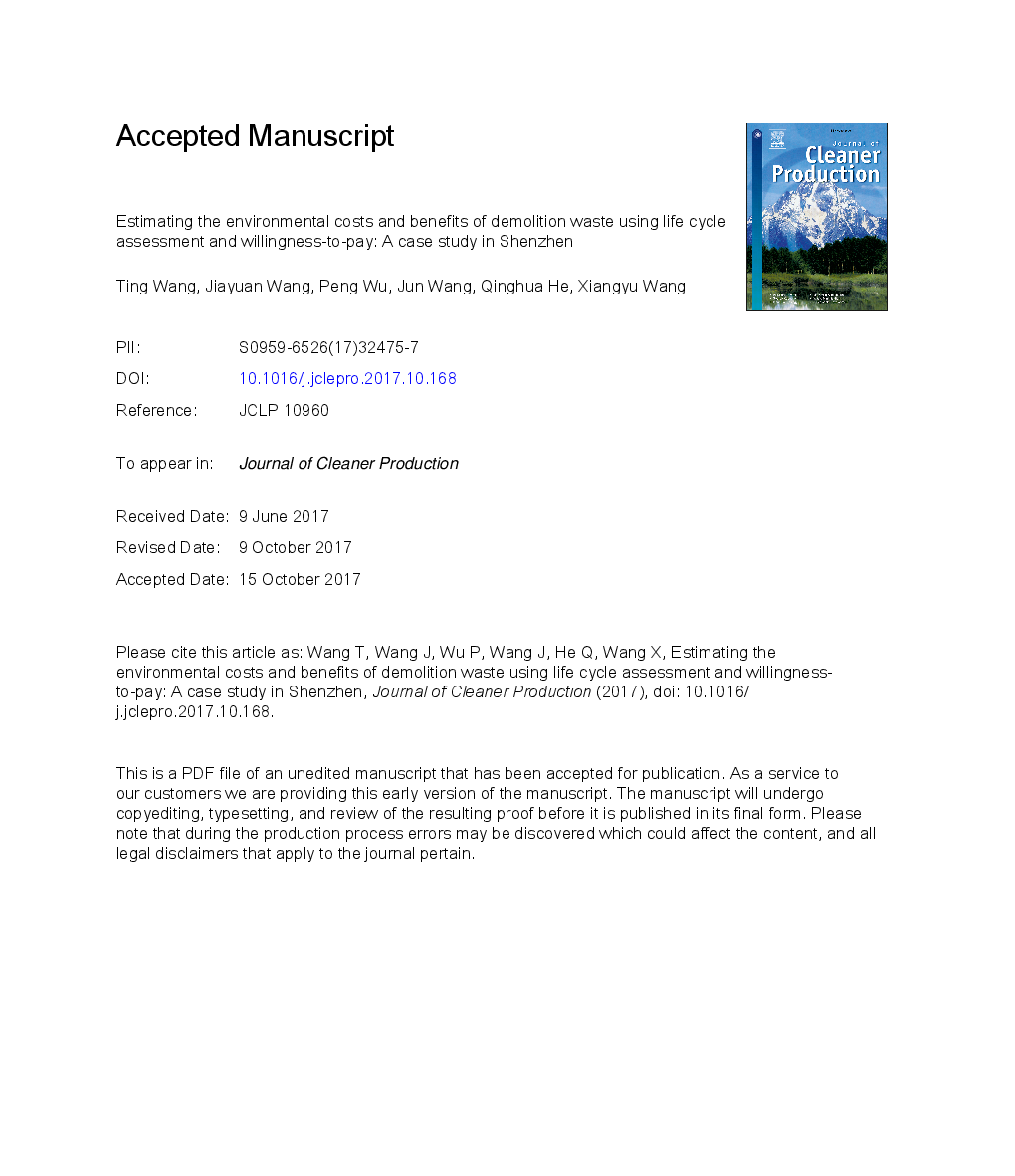ترجمه فارسی عنوان مقاله
برآورد هزینه های زیست محیطی و مزایای زباله های زباله با استفاده از ارزیابی چرخه حیات و تمایل به پرداخت: مطالعه موردی در شنژن
عنوان انگلیسی
Estimating the environmental costs and benefits of demolition waste using life cycle assessment and willingness-to-pay: A case study in Shenzhen
| کد مقاله | سال انتشار | تعداد صفحات مقاله انگلیسی |
|---|---|---|
| 85509 | 2018 | 52 صفحه PDF |
منبع

Publisher : Elsevier - Science Direct (الزویر - ساینس دایرکت)
Journal : Journal of Cleaner Production, Volume 172, 20 January 2018, Pages 14-26
ترجمه کلمات کلیدی
زباله های تخریب شده، بازیافت، دفن زباله، ارزیابی چرخه حیات، تمایل به پرداخت، هزینه و مزایای محیط زیست،
کلمات کلیدی انگلیسی
Demolition waste; Recycling; Landfill; Life cycle assessment; Willingness-to-pay; Environmental cost and benefit;

